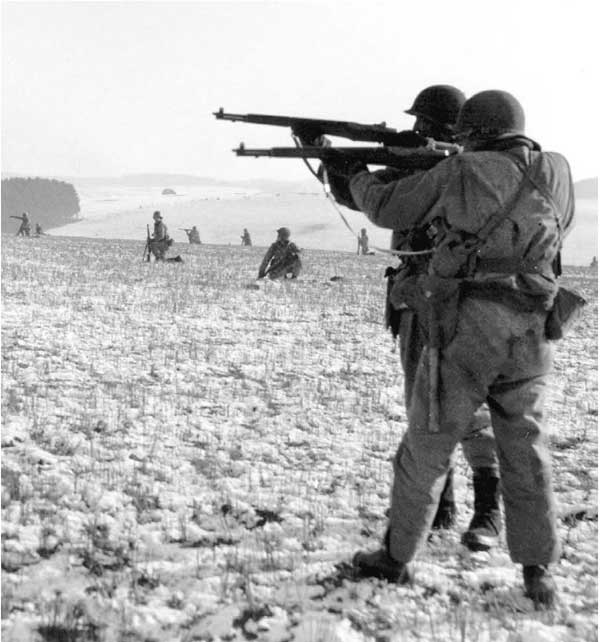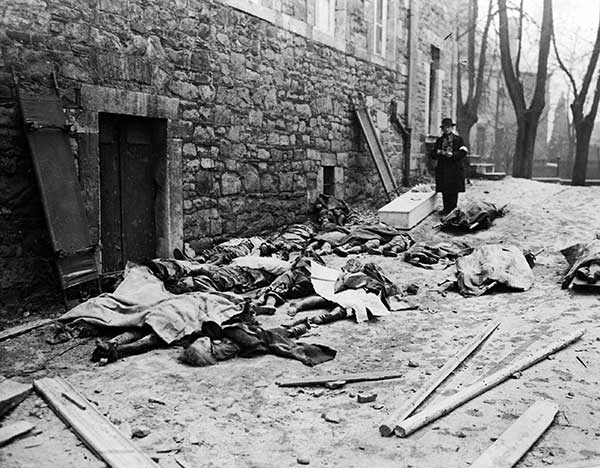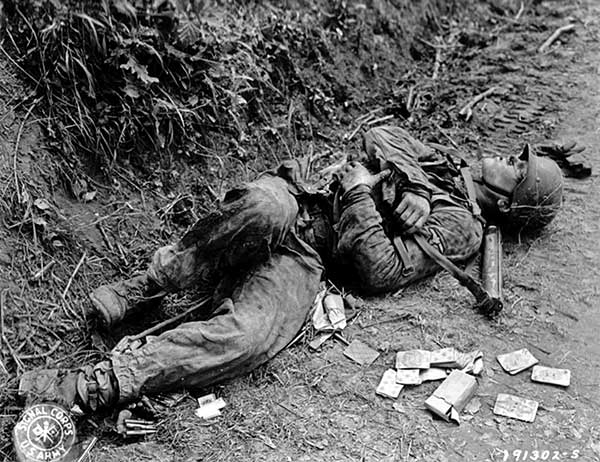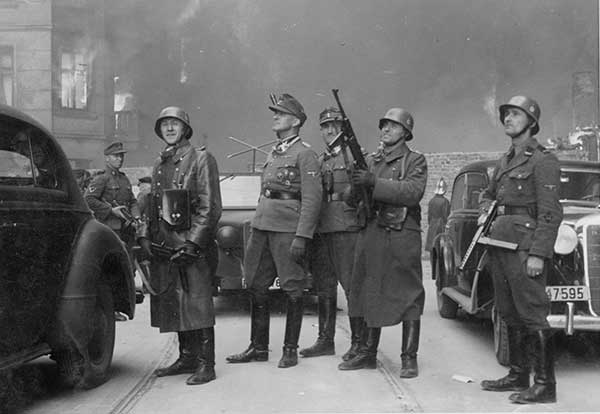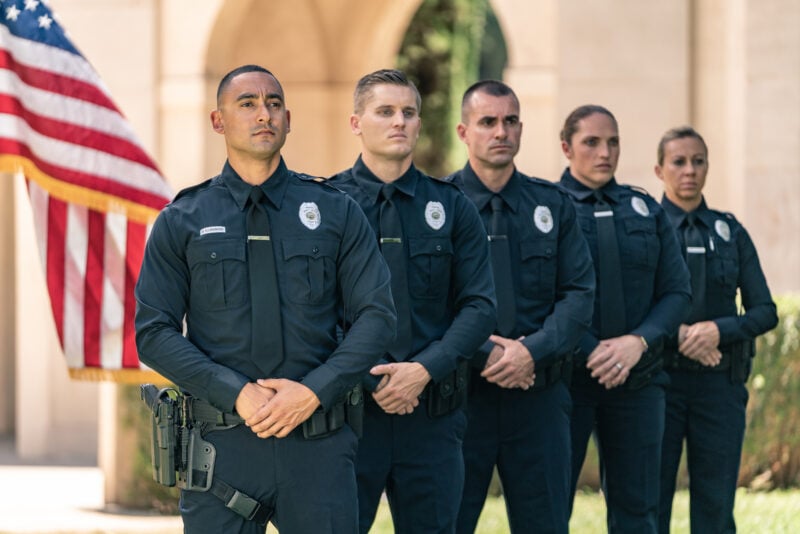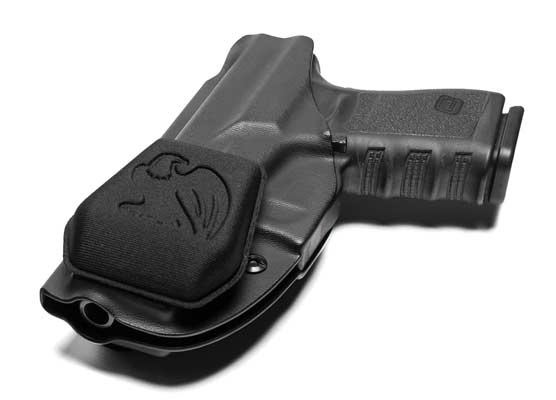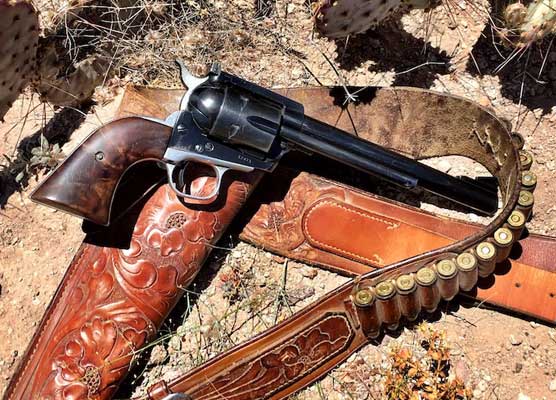On The Shoulders Of Giants
My son and I once visited with a man named Mr. Powell. At the time, he was 89 years old. His rural home was meticulously maintained and sported a spotless American flag snapping on a pole set in concrete in his front yard.
Mr. Powell hit Omaha Beach at around 1430 hours on D-Day. By that time, he said most of the German infantry was obliterated, but the pillboxes were still active. Powell explained that everybody who stopped on the beach died, while most of those that ran across and pushed inland lived. It took him five days to reach St. Lô, at which point General Patton took over. Powell revered Patton and spent the rest of the war with his Third Army.
Powell trained as a paratrooper and made his five jumps. For those who have done time at Fort Benning, he was there when they erected the jump towers. I hadn’t realized they were that old. He broke his collarbone and was subsequently assigned to a leg infantry unit. As a soldier, he made $21 a month, which he claimed twice as much money for half as much work compared to what he made before in south Mississippi.
During the Depression, he lived off of hickory nuts and opossums. He said opossum didn’t taste very good, but “You’d be surprised what you’ll eat when you’re hungry.”
Needless to say, Powell was a bad man in his prime. He was a Godly man, but Hitler started it, and Powell said he was determined to finish it.
Powell had one good buddy who always went out with him when the need arose. He quietly explained that “Them kraut sentries never stood a chance against the two of us.” And that they were very comfortable operating just the two of them alone in the dark with a knife. Apparently, they got fairly good at it.
Powell didn’t have much use for the Schutzstaffel (SS). He called them “Those Gestapo men.” I got the impression SS troops had a bit of a challenge successfully surrendering to Powell and his guys. He got tearful when discussing his wife’s stroke. By contrast, he loved talking about killing Germans.
At one point, his squad was assigned to secure Orly airport in Paris. After a brief firefight, the Germans surrendered. Powell said that the Germans were bad to leave a couple of guys back to shoot the GIs when they were processing prisoners. He and his patrolling buddy laid low and, sure enough, soon spotted a pair of Germans creeping through the grass, trying to get the drop on his GIs. The two Americans lined them up and cut them down. Powell cleaned up the German helmet in question and shipped it back home. It hung on a nail in his barn, a .30 caliber hole running all the way through.
During the Battle of the Bulge, Powell took a small combat patrol out to find the forward thrust of the German armor. He found it. He and his guys were out on their own behind enemy lines for 4 days. When they were making their way back, they encountered a U.S. antitank unit and were “captured.” Otto Skorzeny’s SS men in GI uniforms had done their job well, and nobody trusted anybody.
The trigger-happy AT guys asked them who had won the World Series at gunpoint. Powell said he was a country boy from southern Mississippi. When they were watching the World Series, he was out chasing opossums to feed his family. He told them he had no time for baseball, and they let him pass.
He saw the death camps with the living scarecrows. He captured a “baby factory” in Frankfurt filled with little blonde-haired boys sired by SS men with willing frauleins. He said he didn’t know what happened to the little girls.
Powell relayed dozens of stories, and it was evident he had some strong opinions about a lot of things. He vigorously opposed females in the military. He said real war was too horrible for women. I’ve not lived what he lived. I lack the credibility to question him.
He had great respect for artillery, though he didn’t care much for the .30 carbine — not enough spunk downrange. He never saw a Thompson submachine gun in an infantry unit. Each squad had a BAR, and he respected it. He loved the Garand. He said they were a good bit more efficient with their ammo back then. He said, “I’ll kill way more people with that M1 than these boys will today with them fast-firing guns.” I believed him.
Despite only having a sixth-grade education. Powell successfully completed a military career as a master sergeant, raised a whole bevy of productive children, spent a lifetime paying taxes and making the world a better place. Looking around his outbuildings with a dozen restored tractors and piles of beautifully resurrected old engines speaks to his mechanical proclivities.
We talked for three hours, and I took five pages of notes. The experience of sitting with my son and listening to a man describe what Omaha Beach smelled like was quite literally priceless. Mr. Powell may be gone now, but today, we stand on the shoulders of giants.


